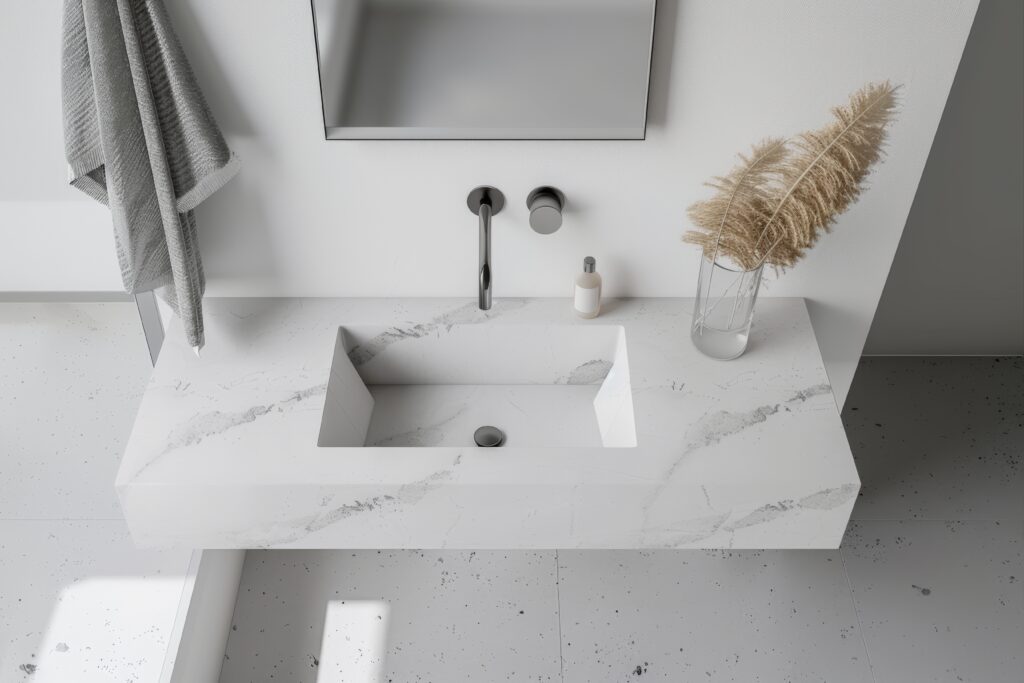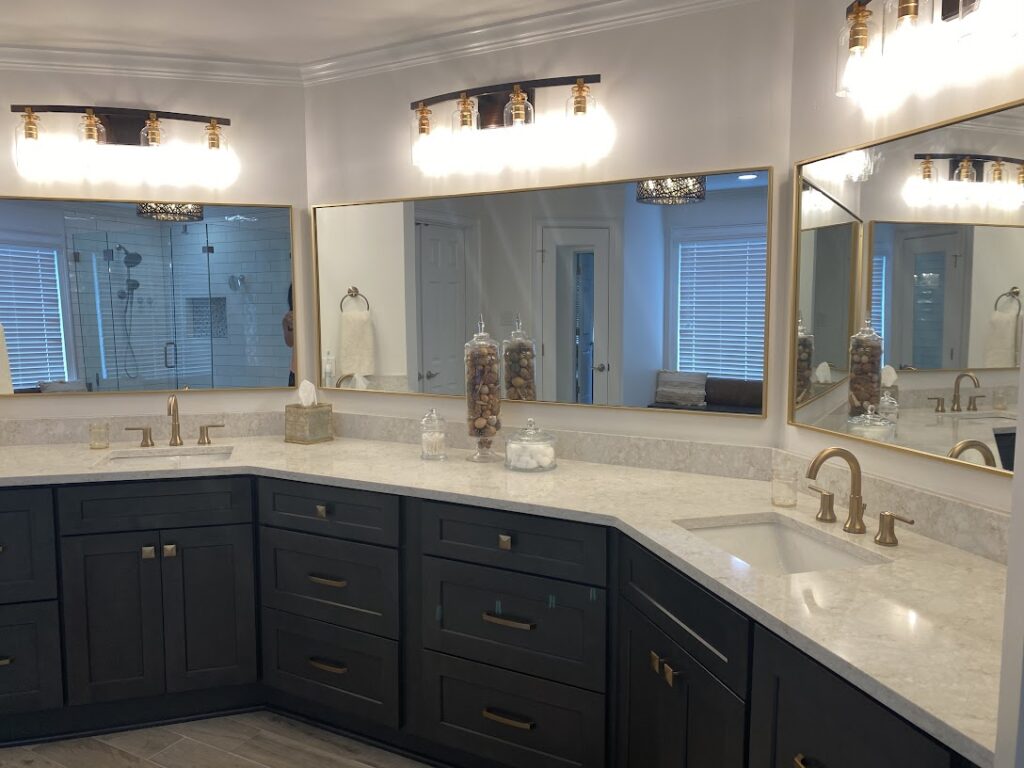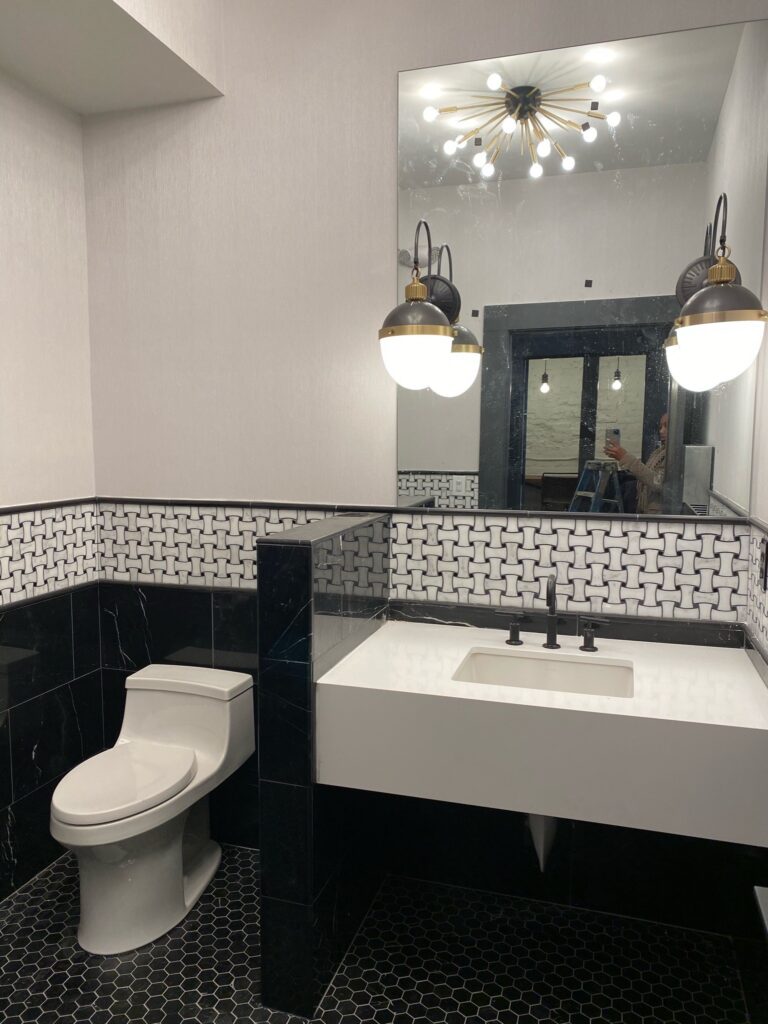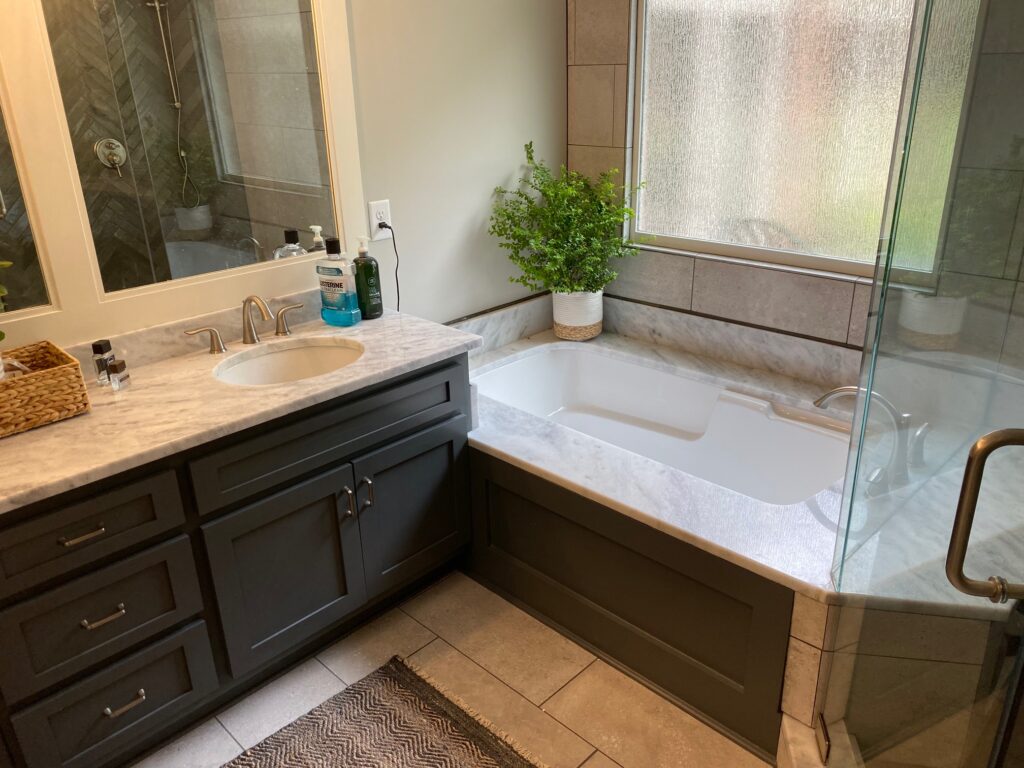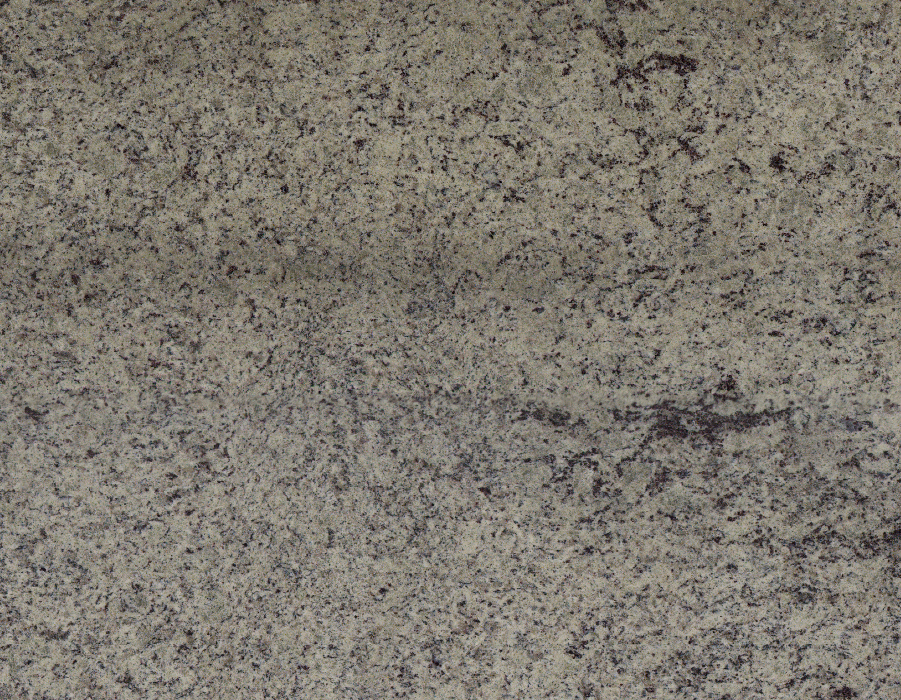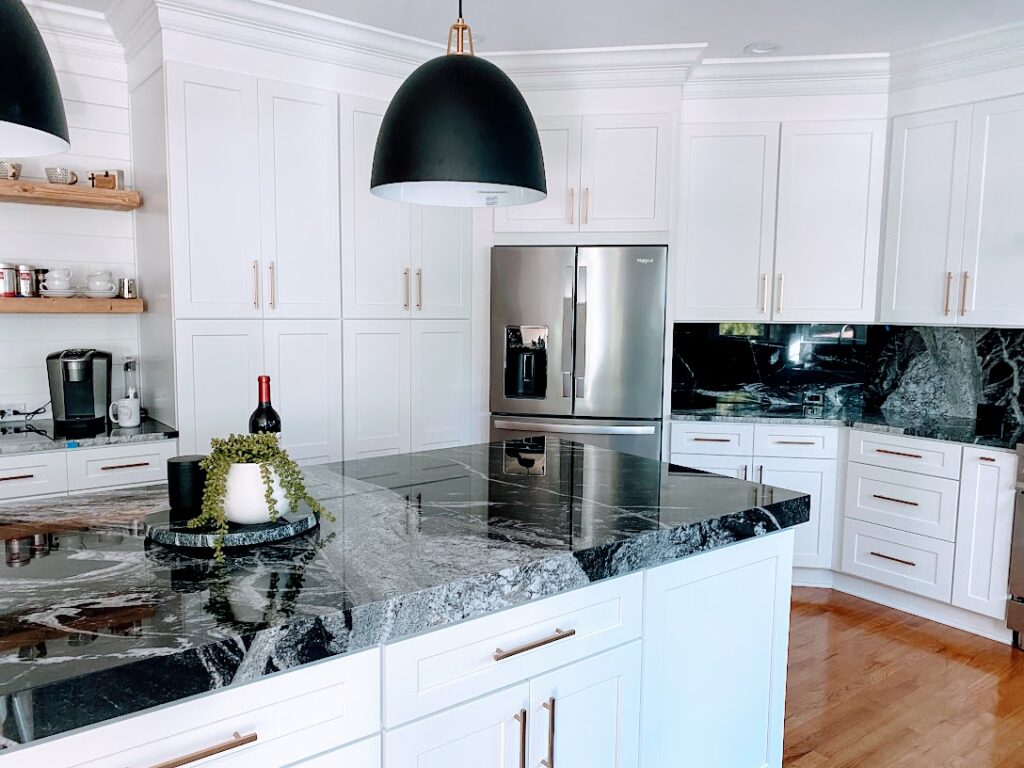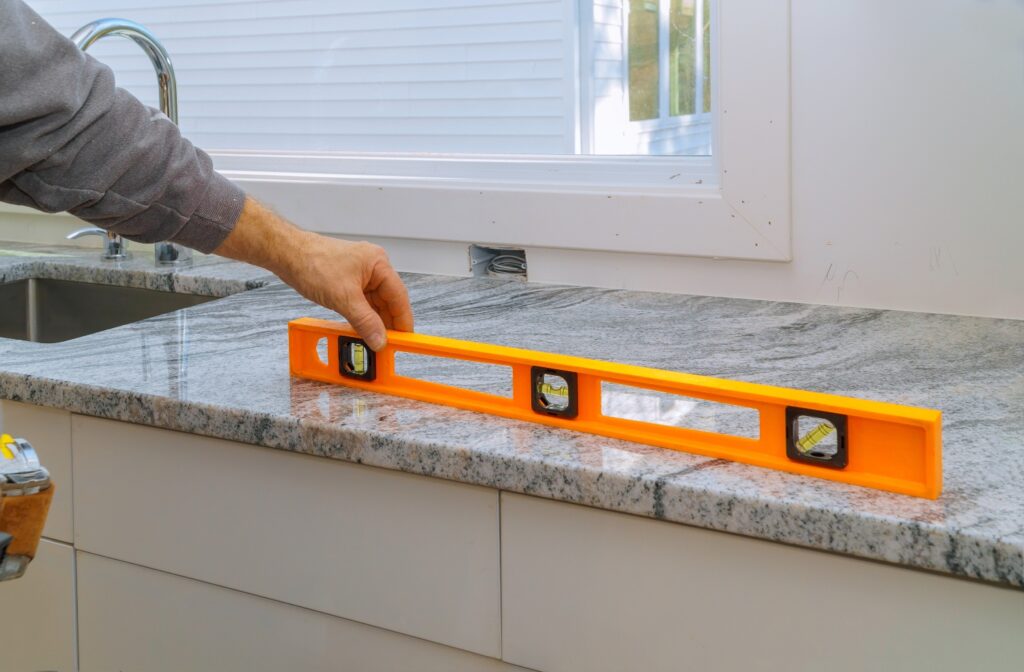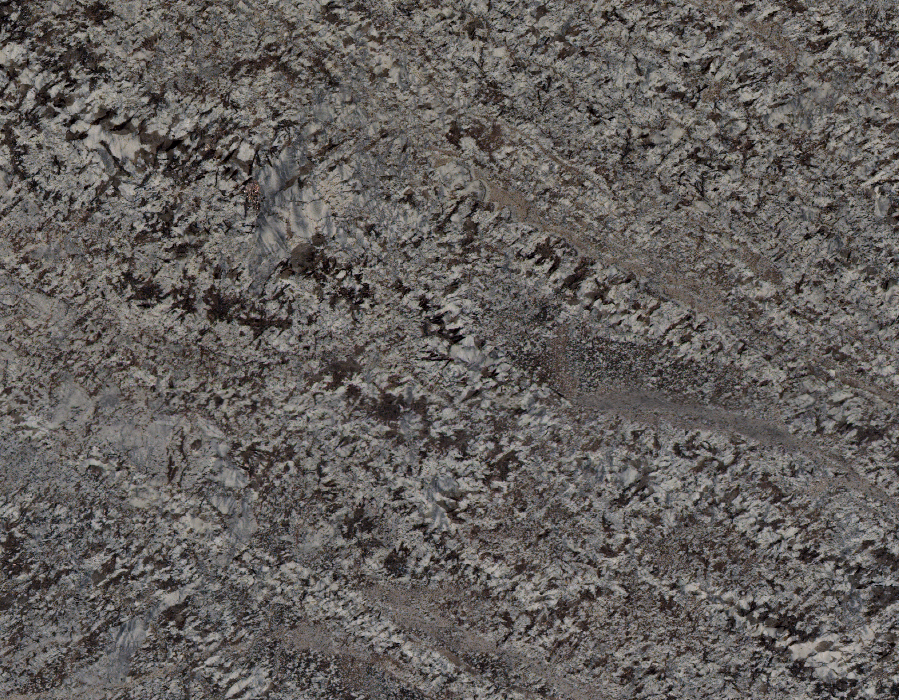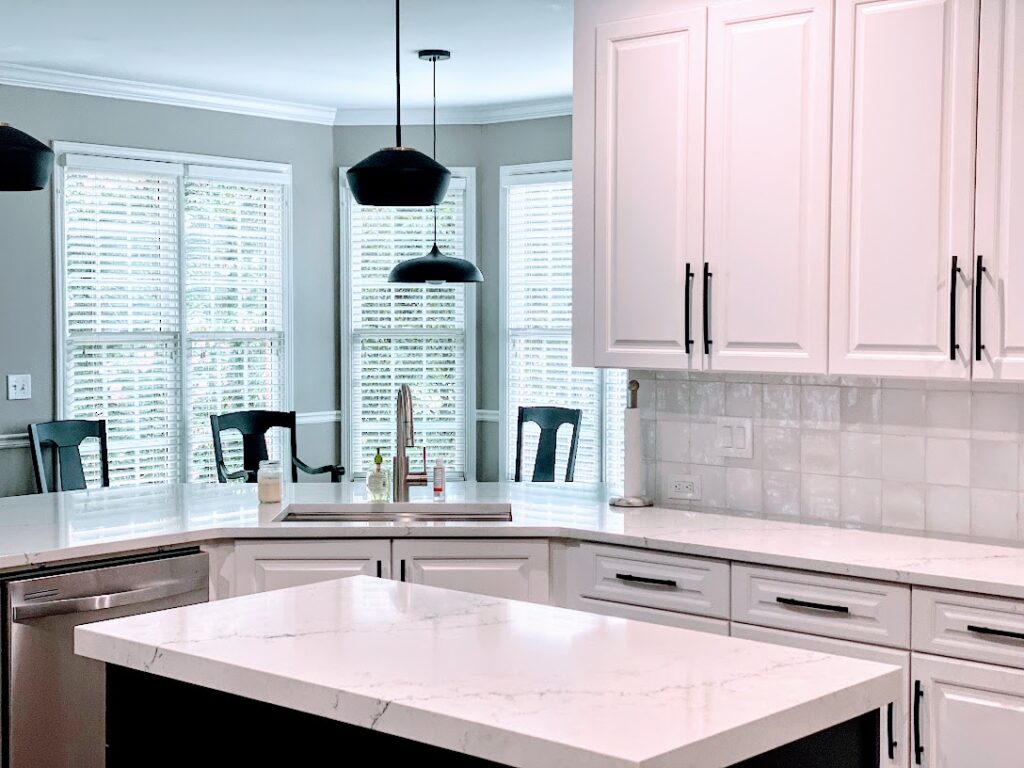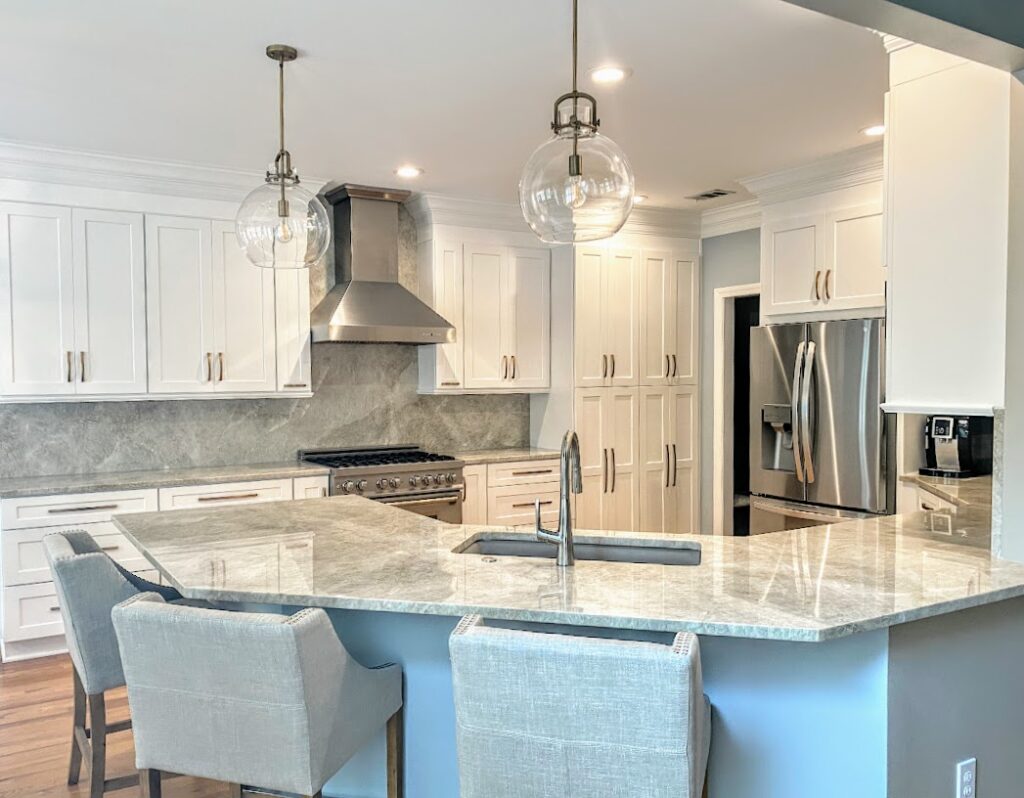How to Clean and Maintain Your Granite Countertops
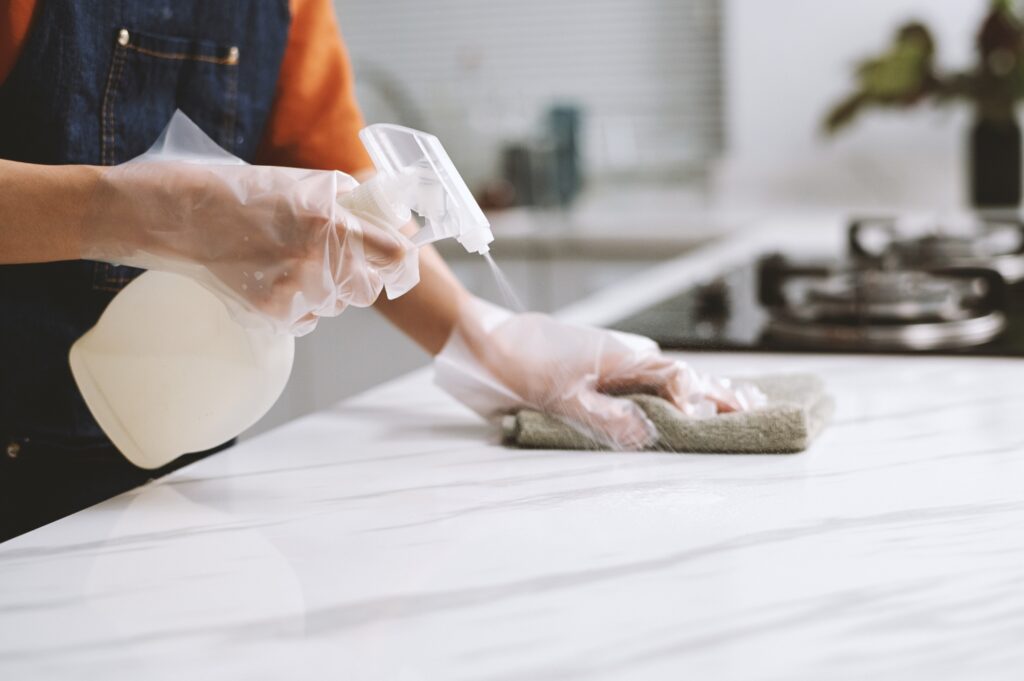
Granite is the ultimate choice for your kitchen countertops, offering a blend of durability and timeless beauty that is unmatched. To ensure your granite surfaces remain pristine, it’s crucial to follow proper maintenance practices. This comprehensive guide provides expert insights on caring for granite countertops, including practical tips and solutions to common concerns.
Daily Cleaning Practices
Establishing a daily cleaning routine is crucial for maintaining the beauty and durability of your granite countertops.
What You’ll Need
- Soft microfiber cloths or paper towels
- pH-neutral dish soap
- Warm water
- Spray bottle (optional)
- Granite-specific cleaner (optional)
Step-by-Step Daily Cleaning
- Remove Debris: Begin by removing any crumbs, dust, or loose debris from the countertop with a dry microfiber cloth or a soft brush.
- Prepare Cleaning Solution: Mix a small amount of pH-neutral dish soap with warm water in a spray bottle or a bowl. If you prefer, use a granite-specific cleaner that is safe for natural stone surfaces.
- Wipe the Surface: Dampen a microfiber cloth with the cleaning solution and gently wipe down the countertop. Avoid using too much water, as excessive moisture can weaken the sealant over time.
- Dry the Surface: After cleaning, use a dry microfiber cloth to buff the surface dry, preventing streaks and water spots.
Avoiding Common Mistakes
- Avoid Acidic or Abrasive Cleaners: Steer clear of vinegar, lemon juice, ammonia, and bleach, as these can etch the granite’s surface and break down the sealant.
- Don’t Use Rough Scrubbers: Steel wool, scouring pads, and abrasive sponges can scratch the surface, dulling the granite’s finish.
Weekly Maintenance Routine
In addition to daily care, a weekly maintenance routine can help preserve the integrity of your granite. Consider the following steps:
- Apply a cleaner specifically designed for natural stone or a mild soap solution to the surface.
- Rinse thoroughly with warm water and dry with a soft cloth to prevent streaks.
- Steer clear of acidic cleaners like vinegar or bleach, which can damage the sealant.
Dealing with Spills: Immediate Action Required
Spills are inevitable in any kitchen, but how you handle them can make all the difference in maintaining your granite countertops.
Types of Spills and Their Impact
- Water: While water is generally harmless, it can leave behind mineral deposits if not wiped up promptly.
- Oils: Cooking oils and other greasy substances can penetrate the stone and cause dark spots.
- Acidic Substances: Citrus juices, wine, and vinegar can etch the surface and dull the finish if left to sit.
How to Handle Spills
- Blot, Don’t Wipe: If a spill occurs, immediately blot the area with a paper towel or a soft cloth. Wiping can spread the spill and cause more extensive staining.
- Use a Mild Cleaner: After blotting, clean the area with a mild, pH-neutral cleaner and warm water. Dry the surface thoroughly to prevent water spots.
Deep Cleaning: Tackling Stubborn Stains
Despite regular cleaning, your granite countertops may develop stubborn stains over time. Here’s how to address these issues without damaging the stone.
Identifying the Stain
- Organic Stains: These are usually caused by food or beverages and appear as dark spots or discolorations.
- Oil-Based Stains: Grease, cooking oil, or cosmetic products can leave behind oily residues that darken the stone.
- Rust Stains: Metal objects left on the countertop for extended periods can cause rust stains, which are particularly difficult to remove.
Cleaning Organic Stains
- Create a Paste: Mix baking soda with water to form a thick paste.
- Apply the Paste: Spread the paste over the stained area and cover it with plastic wrap. Let it sit for 24 hours to draw out the stain.
- Rinse and Dry: After 24 hours, remove the plastic wrap, wipe away the paste, and rinse the area with warm water. Dry thoroughly.
Removing Oil-Based Stains
- Make a Poultice: Combine baking soda with acetone (found in most nail polish removers) to form a thick paste.
- Apply and Cover: Spread the poultice over the stain, cover it with plastic wrap, and allow it to sit for 24 to 48 hours.
- Wipe Clean: After the waiting period, remove the poultice, rinse with water, and dry the area.
Dealing with Rust Stains
- Use a Rust Remover: For rust stains, a specialized stone-safe rust remover is recommended. Follow the product instructions carefully.
- Avoid DIY Remedies: Do not use bleach or other household rust removers, as they can damage the granite.
Sealing Your Granite Countertops: A Crucial Step
Sealing is one of the most important steps in maintaining granite countertops. Proper sealing protects the stone from stains and damage.
When to Seal Granite
- Perform the Water Test: To determine if your granite needs resealing, perform a simple water test. Place a few drops of water on the countertop. If the water beads up, your seal is still intact. If it absorbs into the stone, it’s time to reseal.
- Frequency: Depending on usage, reseal your granite countertops every 6 to 12 months.
How to Seal Granite Countertops
- Clean the Surface: Thoroughly clean the countertop and allow it to dry completely before applying the sealant.
- Apply the Sealant: Using a soft cloth or applicator pad, apply the sealant evenly across the surface. Make sure to follow the manufacturer’s instructions for application.
- Let It Sit: Allow the sealant to sit on the granite for the recommended time (usually 15-30 minutes).
- Wipe Off Excess: After the waiting period, wipe off any excess sealant with a clean, dry cloth.
- Buff the Surface: Once the sealant has dried, buff the surface to enhance the granite’s shine.
Polishing Granite: Enhancing the Shine
Polishing your granite countertops enhances their natural luster and provides an additional layer of protection.
When to Polish
- Polishing can be done every few months or after sealing to maintain the granite’s shine. Avoid over-polishing, as this can lead to a build-up of product on the surface.
How to Polish Granite
- Choose the Right Polish: Use a granite-specific polish that is safe for natural stone.
- Apply the Polish: Spray the polish onto the surface or apply it with a soft cloth.
- Buff to Shine: Using a circular motion, buff the polish into the granite until the surface is shiny and smooth.
Common Concerns and Expert Insights
1. How often should I reseal my granite?
Determining how often you need to reseal your granite countertops depends on the type of granite and how frequently it is used. A quick water test can easily assess if resealing is required. If water beads on the surface, the seal is still effective; however, if it absorbs into the stone, then it’s time to apply a new sealer.
2. What cleaners are safe for granite?
To properly care for your countertops, it is essential to use cleaners specifically formulated for natural stone or a mild soap solution. Harsh chemicals should be avoided as they can degrade the sealant and cause damage to the stone over time. It is crucial to make sure you are using the right products to maintain the beauty and durability of your granite surfaces.
3. How can I address scratches on my granite?
Minor scratches can often be polished out with a granite polishing compound. For deeper scratches, consulting a professional may be necessary for repair.
Granite Care Comparison Table
Care Task | Frequency | Recommended Products |
Daily Cleaning | Daily | Mild dish soap, soft cloth |
Weekly Deep Clean | Weekly | Granite cleaner, warm water |
Resealing | 1-3 years | Granite sealant |
Conclusion
With the right care and maintenance, granite surfaces can remain a beautiful and functional part of your home for many years. By following these guidelines and addressing common concerns, you can ensure that your granite countertops continue to impress. Remember, a little effort goes a long way in preserving the elegance of your surfaces.

Val Carvalho is a manager at Atlanta Stone Creations, with nearly two decades of experience in the stone and design industry. In addition to her leadership role, Val plays a key part in sales and design, bringing creativity, precision, and a strong sense of style to every project. Known for her warm and collaborative approach, she builds strong relationships with both her team and her clients. Val is passionate about delivering beautiful, high-quality results and creating an exceptional experience from start to finish.

